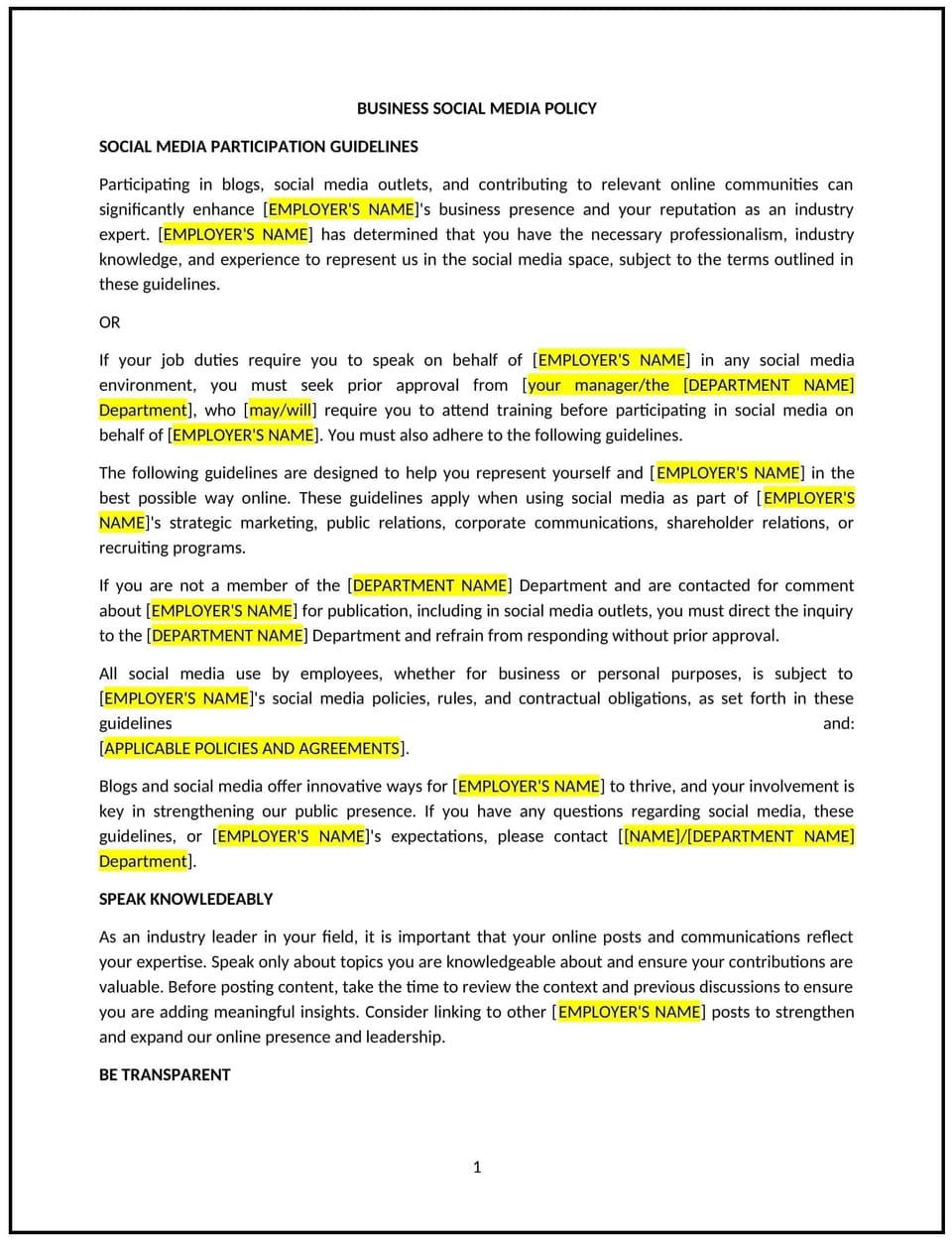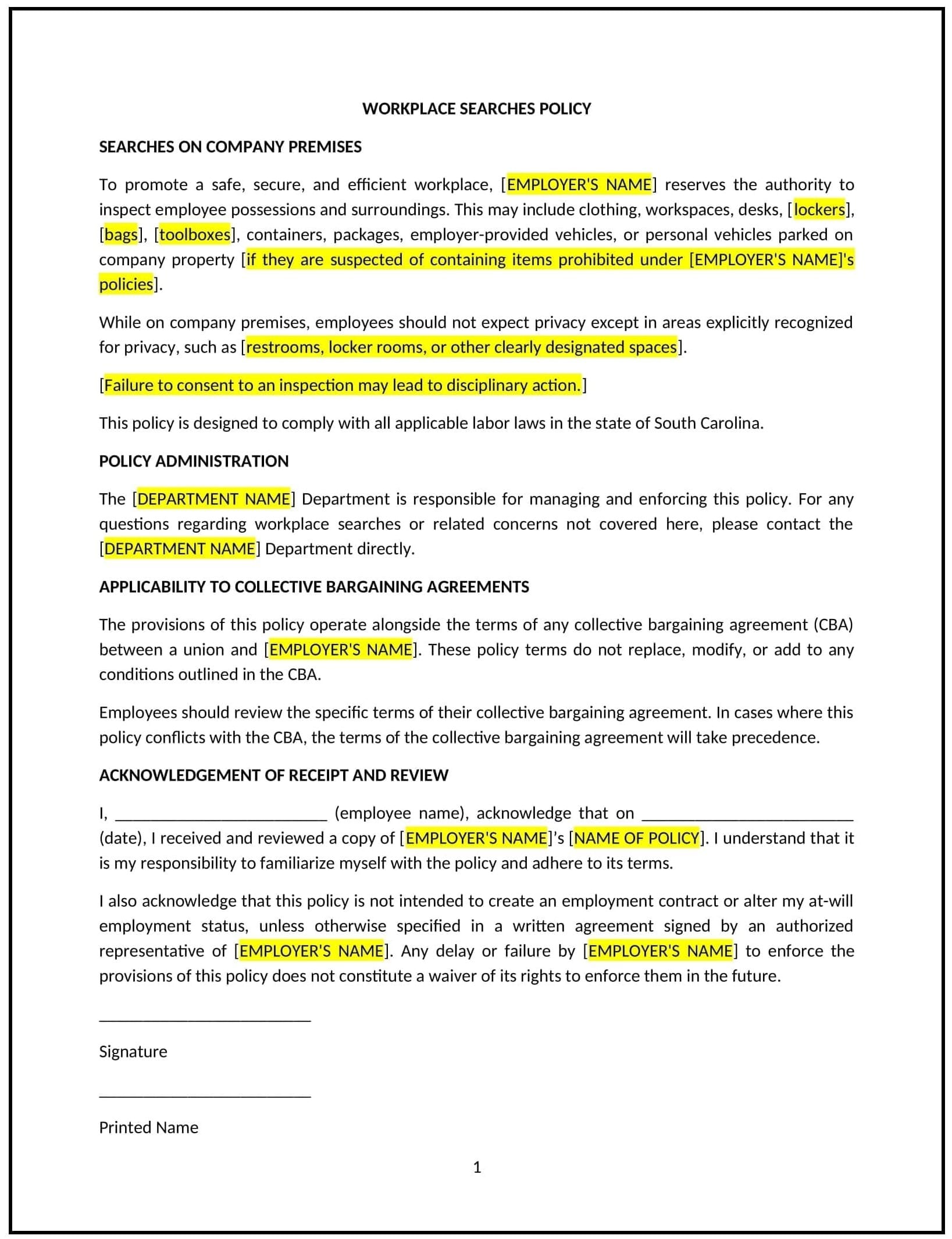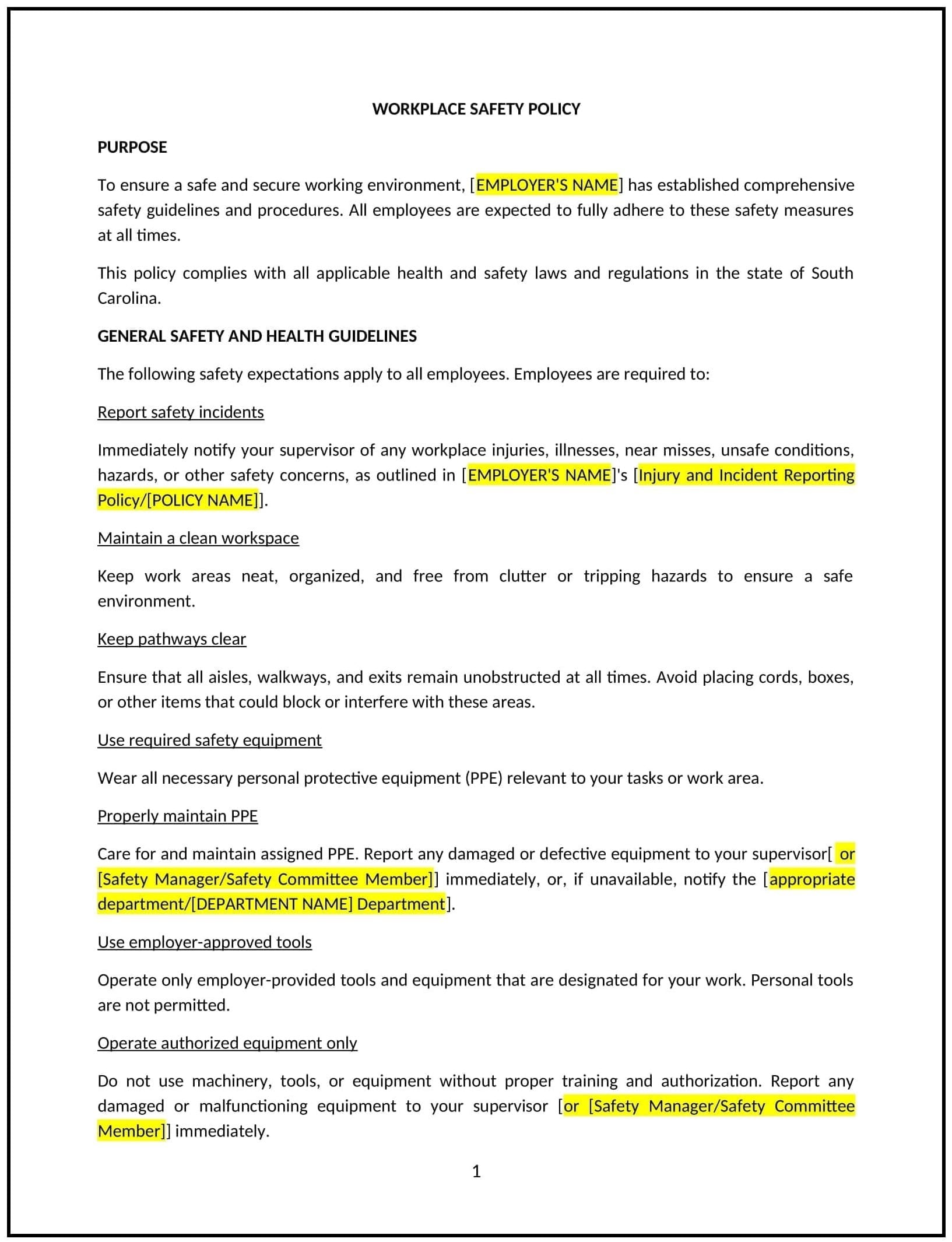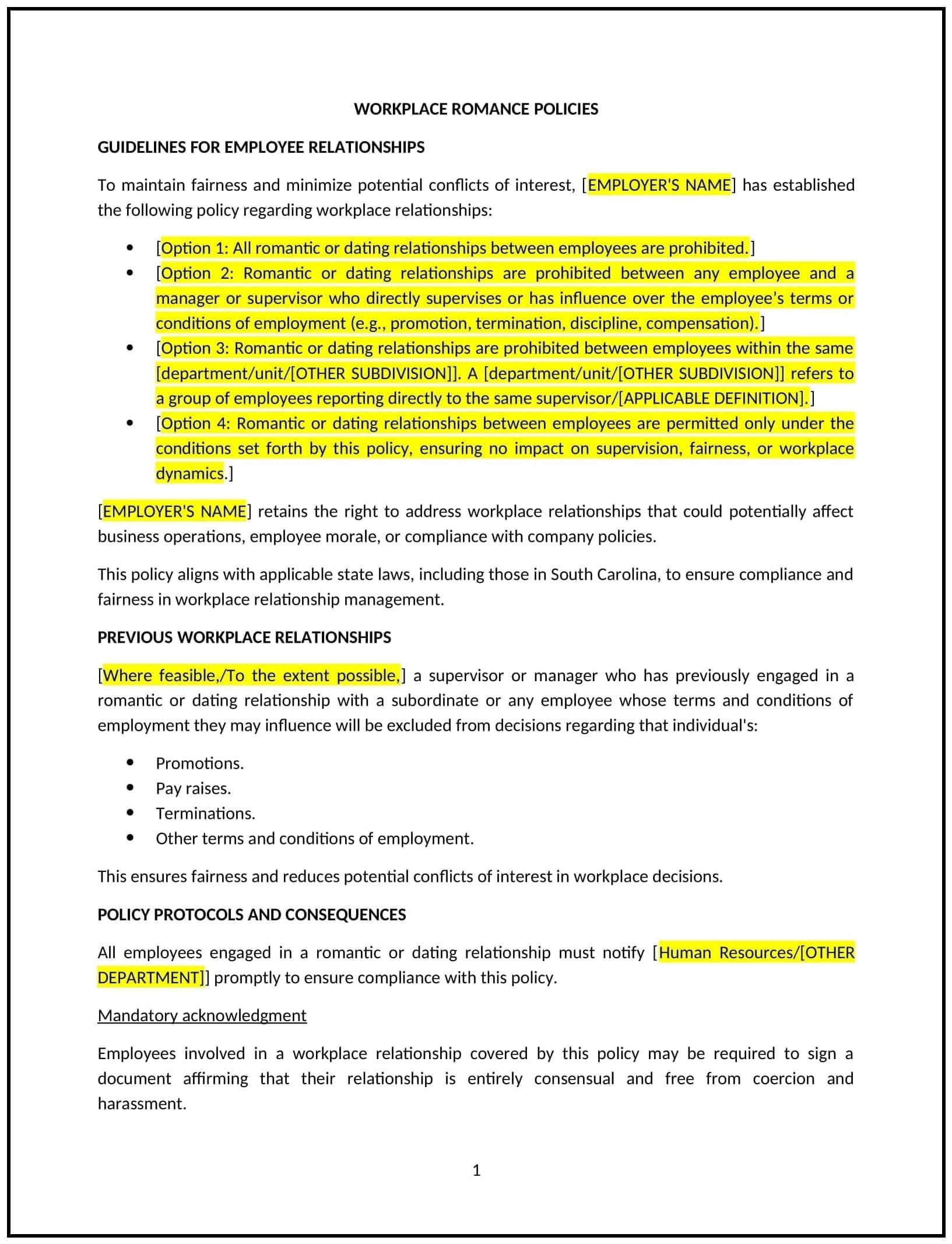Business social media policy (South Carolina): Free template

Business social media policy (South Carolina)
This business social media policy is designed to help South Carolina businesses establish guidelines for employee use of social media, both professionally and personally. It outlines procedures for maintaining professionalism, protecting company reputation, and ensuring compliance with legal and ethical standards.
By adopting this policy, businesses can leverage social media effectively while minimizing risks and aligning with general best practices for online conduct.
How to use this business social media policy (South Carolina)
- Define scope: Specify which social media platforms are covered, such as Facebook, Twitter, LinkedIn, or Instagram.
- Set professional use guidelines: Provide guidelines for employees who manage company social media accounts, including content approval processes and response protocols.
- Address personal use: Outline expectations for employees’ personal social media use, such as avoiding posts that could harm the company’s reputation.
- Ensure confidentiality: Include measures to protect sensitive company information, such as prohibiting the sharing of internal documents or trade secrets.
- Address legal compliance: Provide guidelines for adhering to copyright laws, privacy regulations, and other legal requirements.
- Train employees: Educate employees on the policy’s requirements and their responsibilities for maintaining professionalism online.
- Review and update: Assess the policy annually to ensure it aligns with evolving social media trends and business needs.
Benefits of using this business social media policy (South Carolina)
This policy offers several advantages for South Carolina businesses:
- Protects company reputation: Establishes clear guidelines for maintaining professionalism and avoiding damaging posts.
- Enhances brand image: Ensures consistent and positive representation of the business on social media.
- Reduces risks: Helps mitigate legal and reputational risks associated with inappropriate social media use.
- Aligns with best practices: Demonstrates a commitment to responsible social media use and online conduct.
- Supports marketing efforts: Provides a framework for leveraging social media to promote the business effectively.
Tips for using this business social media policy (South Carolina)
- Communicate the policy: Share the policy with employees and include it in the employee handbook.
- Provide training: Educate employees on the policy’s requirements and their responsibilities for maintaining professionalism online.
- Monitor compliance: Regularly review company and employee social media activity to ensure adherence to the policy.
- Address issues promptly: Take corrective action if employees violate the policy or post inappropriate content.
- Update regularly: Review the policy annually to ensure it aligns with evolving social media trends and business needs.
Q: How does this policy benefit businesses?
A: It protects company reputation, enhances brand image, reduces risks, and aligns with best practices for social media use.
Q: What types of social media platforms are typically covered?
A: The policy may cover platforms such as Facebook, Twitter, LinkedIn, Instagram, and others used for professional or personal purposes.
Q: Can businesses monitor employees’ personal social media accounts?
A: Businesses should respect employee privacy and only monitor personal accounts if there is a legitimate business reason and compliance with legal standards.
Q: What should employees do if they accidentally post something inappropriate?
A: Employees should immediately notify their supervisor or HR and take steps to remove or correct the post, if possible.
Q: How often should businesses review this policy?
A: Businesses should review the policy annually or as needed to ensure it aligns with evolving social media trends and business needs.
This article contains general legal information and does not contain legal advice. Cobrief is not a law firm or a substitute for an attorney or law firm. The law is complex and changes often. For legal advice, please ask a lawyer.


